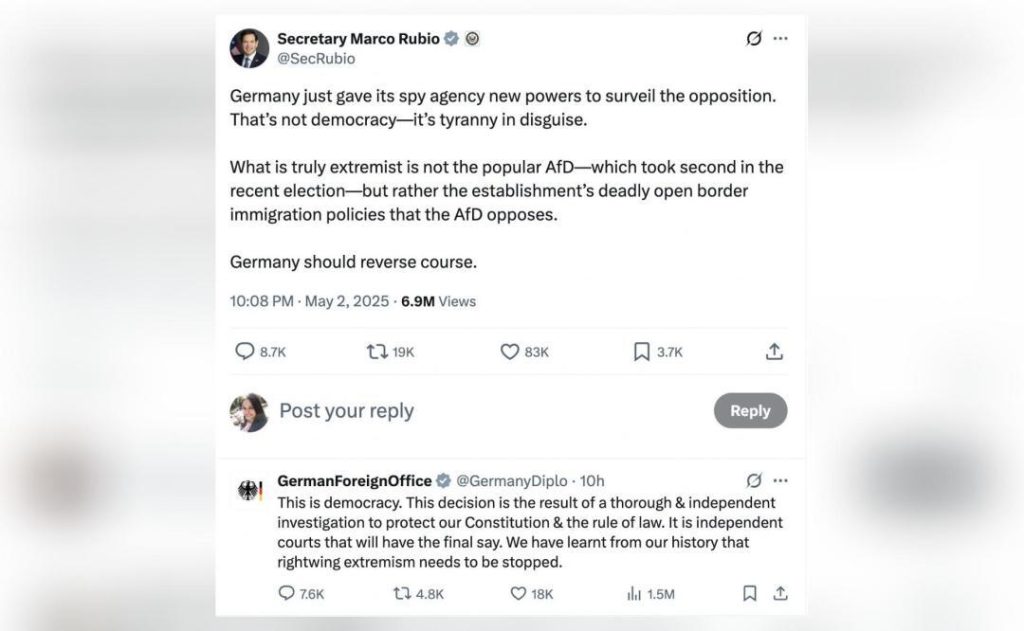
US Secretary of State Marco Rubio and German Foreign Ministry Clash Over AfD Party’s ‘Extremist’ Tag
A heated dispute has erupted between the United States Secretary of State, Marco Rubio, and Germany’s Foreign Ministry over the designation of the far-right Alternative for Germany (AfD) party as “extremist”. The controversy began after Germany’s domestic intelligence agency, the Federal Office for the Protection of the Constitution (BfV), labelled the AfD party as “extremist” this week. Rubio, in a strongly-worded statement, accused Germany of enabling “tyranny in disguise” by making this decision.
The BfV’s designation of the AfD party as “extremist” was made after a thorough investigation to protect Germany’s Constitution. The agency identified the party’s “anti-constitutional” and “xenophobic” tendencies, citing its opposition to immigration and its perceived anti-Semitic and Islamophobic views. The German government has stood by the agency’s decision, stating that the designation is a result of a thorough investigation to protect their Constitution.
Rubio, however, has taken a strong exception to the German government’s stance, describing it as “misguided” and “dangerous”. In his statement, Rubio said, “It is misguided and dangerous for Germany to label the AfD as ‘extremist’ without providing any credible evidence or explanation. This decision only serves to further polarize German politics and undermine the country’s efforts to combat extremism.”
The US Secretary of State’s remarks have been widely seen as a rare public rebuke of a European ally by the Trump administration. Rubio’s criticism has also been met with criticism from some quarters in Germany, with many arguing that the AfD party’s views do indeed pose a threat to the country’s democratic values.
The AfD party, which was founded in 2013, has been gaining popularity in Germany in recent years, capitalizing on public discontent with the country’s handling of the refugee crisis and concerns over terrorism. The party’s anti-immigrant and anti-Muslim rhetoric has drawn criticism from many quarters, including human rights groups and Jewish organizations.
The German government’s decision to designate the AfD party as “extremist” is seen as a significant escalation in the country’s efforts to combat extremism. The move has been welcomed by many, including Jewish leaders and human rights activists, who have long criticized the AfD party’s views as Islamophobic and anti-Semitic.
However, the AfD party has denied the allegations, describing the designation as a “politically motivated” attack. The party’s leader, Alexander Gauland, has accused the German government of trying to suppress free speech and silence opposition voices.
The controversy has also highlighted the growing tensions between the US and Germany over issues such as immigration and terrorism. The Trump administration has been critical of Germany’s handling of the refugee crisis, which has seen hundreds of thousands of asylum seekers arrive in the country since 2015.
The German government has stood by its decision to designate the AfD party as “extremist”, with a government spokesperson saying, “The decision was made after a thorough investigation to protect our Constitution. We stand by the agency’s findings and will continue to monitor the party’s activities closely.”
The dispute between Rubio and the German Foreign Ministry is a rare public clash between the US and a European ally. The controversy is likely to continue to dominate headlines in the coming days, with many wondering what the long-term implications will be for relations between the US and Germany.



